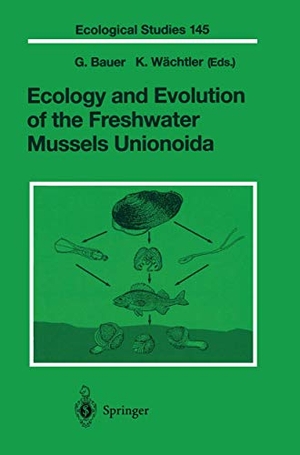Für statistische Zwecke und um bestmögliche Funktionalität zu bieten, speichert diese Website Cookies auf Ihrem Gerät. Das Speichern von Cookies kann in den Browser-Einstellungen deaktiviert werden. Wenn Sie die Website weiter nutzen, stimmen Sie der Verwendung von Cookies zu.
Cookie akzeptieren
Ecology and Evolution of the Freshwater Mussels Unionoida
- Springer Berlin Heidelberg
- 2000
- Gebunden
- 420 Seiten
- ISBN 9783540672685
All those who think that bivalves are boring are in the best company. Karl von Frisch is reported to have turned the pages more quickly in texts where bivalves were treated because, according to him, they literally lack any behaviour. The fact that they can filtrate huge amounts of water, burrow into the sedi ment, actively swim, drill holes into rocks and boats or detect shadows with the aid of pretty blue eyes located on the rim of their mantle obviously left v. Frisch unimpressed. Why, then, a book on the large freshwater mussels (Naiads or Unionoida), which on first sight are much less spectacular than
Mehr
Weniger
zzgl. Versand
in Kürze